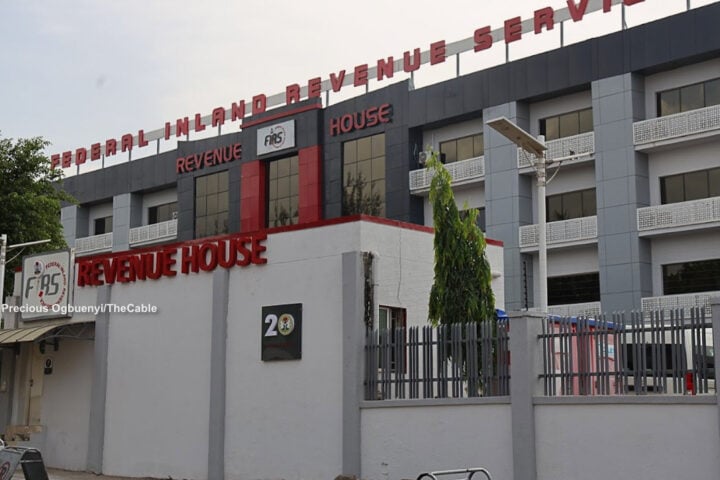The Federal Inland Revenue Service (FIRS) says small businesses will still go through the full tax computation process from 2026, even though they will not be required to pay tax.
Speaking in a webinar on Wednesday, Kehinde Kajesomo, FIRS deputy director, said the revenue service will calculate such businesses’ assessable profits, deduct capital allowances and losses, and arrive at total profits before applying the zero tax rate.
“But what it means is that they will undergo the process of computing their taxable profits, and they will file these returns with the tax authority,” Kajesomo said.
“That’s what it means. They will do every other thing, compute their taxes, but the tax they will pay will be zero, meaning that they will not pay tax.”
Advertisement
For other companies, the deputy director said their rate of tax will be 30 percent, but the president may reduce it to 25 percent, subject to advice from the national economic council (NEC).
“If that happens, a relevant order will be published in the official gazette of the federal government,” he said.
“Then, the turnover that defines who is a small company, has been increased from N25 million to N50 million, but coupled with fixed assets of N250 million.
Advertisement
“Any company that meets that threshold, its tax rate is 0 percent, including tax on their capital gains.
“They paid capital gains tax of 10 percent before, but now, as long as they are small companies, they will pay no income tax, which will include the fact that they will not be having tax on their gains, or disposal of assets.”
‘CAPITAL GAINS TAX RATE DIDN’T MOVE FROM 10% TO 30%’
Kajesomo said the capital gains tax rate was not increased from 10 percent to 30 percent, and no specific rate is mandated by law for capital gains.
He said, instead, tax treatment depends on company size, as small companies’ gains are effectively taxed at 0 percent — down from 10 percent, while gains for larger companies are subject to their general corporate income tax rate of 30 percent.
Advertisement
“In actual fact, they may not pay 30 percent, because what it means is that for some companies that are loss-making, because the law allows you to put all your income in one basket, it means you can deduct losses of one item from the profit from another item,” he said.
“Meaning that if you make gains in respect of your disposable asset, or you make losses in respect of your business income, by the time you mix this loss and gain together, the possibility is that you may be paying tax on your gains.”
‘NEW TAX RATES APPLY ONLY TO EXTRA INCOME ABOVE EACH BAND’
The tax expert clarified that under the revised tax act, higher rates apply only to the portion of income that falls into each band, not the entire taxable income.
He said this means individuals who enter the top band will pay 25 percent only on the extra amount above the threshold, not on their full earnings.
Advertisement
“So if I’m an individual, and let’s assume my taxable income is N51 million, is that N51 million going to be subject to 25 percent? No,” he explained.
“Out of that, my N51 million, the first N800,000 will be at 0%. The next 2.2 million will be at 15 percent, and so on and so forth.
Advertisement
“That means if my total taxable income is N51 million, I will actually pay 25 percent on just the 1 million that is above N50 million.
“We have some exemptions. For individuals earning national minimum wage, they are exempt from tax. Then for military officers, which we call other ranks, their salaries are exempt from tax.
Advertisement
“Then for those under diplomatic immunities, or when Nigeria has an agreement that exempts them from taxation, they will be exempt from income tax.”
The federal government in June retained the corporate income tax (CIT) at a flat rate of 30 percent for all companies, excluding small businesses.
Advertisement
The CIT framework is contained in the new provisions of the Nigerian Tax Act (NTA), which will take effect in January 2026.






